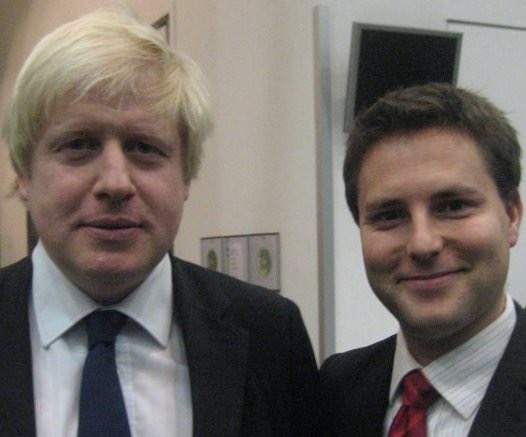Hide and seek? Adventures in Borisland

Politicians love publicity. That’s a truism, isn’t it? It’s their oxygen, their lifeblood, their mother’s milk. If a politician makes a speech and there’s no one there to hear it, did it really happen? Of course, this isn’t a blanket truth. No one wants the kind of publicity which results in flashbulbs outside your front door, an awkward stance, “Terrible misjudgement,” “Time to reflect,” or worse, “Consequently I will be standing down.” But, in general, the politician’s life is ruled by the photo opp, the interview, the op-ed, the passing comment to a journalist.
The race for the Conservative leadership began as a crowded field. At one point there were 13 candidates, an almost ludicrous number. Gradually that’s been winnowed down, and now we just have two contenders left: Alexander Boris de Pfeffel Johnson, and Jeremy Richard Streynsham Hunt. All being equal, one of these men will move into Number 10, Downing Street, this month, and we will have a shiny new PM to take aim at.
So why has Boris Johnson, the ebullient former Mayor of London, publicity seeker extraordinaire, known universally as just “Boris”, been so uncharacteristically camera shy? The broadcasters have been falling over themselves to provide a platform for a good, ratings-friendly stab and slash. On June 16, there was a debate on Channel 4 moderated by Krishnan Guru-Murthy. Boris decided not to participate. He did agree to take part in a debate on the BBC two days later, with Emily Maitlis in the umpire’s chair. Sky News were then scheduled to hold a head-to-head clash between the final two contenders, Johnson and Hunt, on June 25, but Boris decided once again to sit it out. Hunt was quick to label him a “coward”, telling him to “man up”. It was postponed and the invitation reiterated. Jeremy Hunt rather cleverly accepted unconditionally, and now the focus is on the front-runner again.
No-one who has observed British politics over the past 15 years could possibly think that Boris is shy of the media or dislikes his face appearing on the news. What on earth is going on? Arguably he’s been auditioning for this all his adult life, yet now he’s suddenly bashful, making excuses and pooh-poohing the format.
The truth, of course, is that Boris, as the undisputed front-runner, has nothing to gain and everything to lose from a head-to-head debate. He is a clever man, with a deceptively slick turn of phrase and a quick brain, but his advisers know too that he doesn’t always take into account the time lag between speech and thought. The battlefield is littered with his gaffes: “letterboxes”, “bank robbers”, “piccaninnies”, “watermelon smiles”. Yes, he might well best the rather staid Hunt in a face-to-face debate, and charm his audience as he can so infuriatingly do; but he might also veer wildly off piste, say something foolish or make an implausible promise for the future. So his minders have decided that it is easier just to shield him from press scrutiny, lock the bedroom door and put the key on a chain round Gavin Williamson’s neck.
But how does this look? Ever since Roy Hattersley was famously replaced on Have I Got News For You? by a tub of lard, the threat of being ‘empty-chaired’ has been a potent one. It’s so easy to look scared, afraid of robust debate, or even – hard to imagine we’re saying this of Boris – unsure of yourself. The Johnson camp has pursued a bare-minimum strategy. Keep the candidate quiet, ensure that he says as little as possible, issue no hostages to fortune, and wait for the Conservative Party membership to deliver the crushing victory that the opinion polls suggest they will.
For a while, it looked like perhaps Boris was paying the price. Jeremy Hunt surged in the polls, suggesting that he had a more realistic chance of becoming PM than anyone had ever thought, and, to be fair, he has campaigned well: open, honest, approachable, human. No skeletons in Jeremy’s closet. He’s still the well-mannered, tidy, organised head boy he was at Charterhouse. Could slightly dull managerialism actually carry the day against colourful, erratic, unpredictable Boris?
The most recent polls suggest the natural order is being restored, and that Boris is now comfortably back ahead. But I’m not so sure. Even if he wins – as still seems overwhelmingly likely – I think his brand has been tarnished. He’s not the affable, off-the-cuff, devil-may-care character he was. He suddenly looks guarded, calculating, uncertain, and, maybe, just maybe, a little bit vulnerable. They say you campaign in poetry and govern in prose. Say-Nothing Boris will have to prove that you can campaign in mime, too.